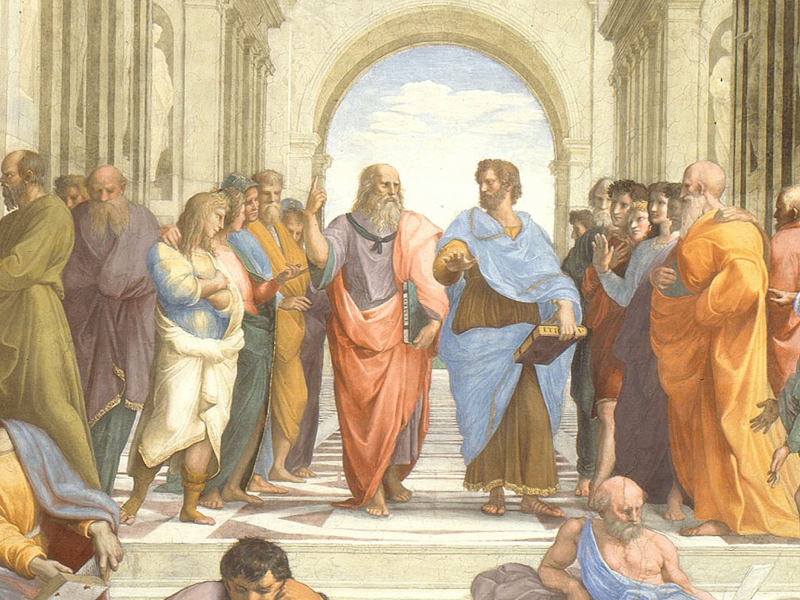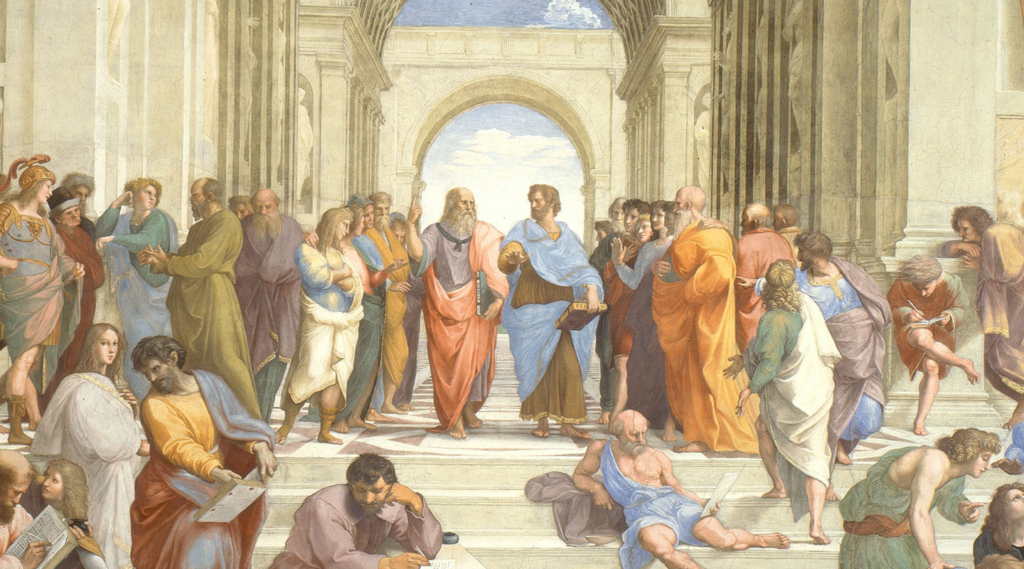Plato’s The Republic continues to be read, taught, and studied many centuries beyond its writing. It endures because of the way it raises fundamental questions about politics. Many Christians have been exposed to The Republic through C.S. Lewis’s The Abolition of Man. When Lewis writes that the head rules the body through the chest, he is explicitly referencing Plato’s diagram of the human soul (the reason, the will, and the appetite corresponding to the head, the chest, and the stomach). J.R.R. Tolkien’s powerful and evil ring is quite likely drawn from Plato’s famed Ring of Gyges, which makes the wearer invisible (perhaps even to God in the myth). Through the story, we discover that no man can bear such power without corruption. To know Plato’s Republic is, in a sense, an important part of what it means to be an educated person in the western world.

One of the memorable images that comes from the book is that of a monster and its handlers. Mastering the monster is a frightening, but achievable task. Some people learn how to do it. They discern how to produce certain sounds from the monster with manipulation. These sounds they declare to be good, not so much because they express something truly valuable, but because they control the sounds. This monster is public opinion. The handlers of the monster are the sophists. Sophists are those who are paid to demonstrate the art of winning arguments by any means necessary. They peddle power rather than truth. The most famous of them is Socrates’ antagonist Thrasymachus who aggressively declares that “justice is nothing more than the interest of the stronger.” Rather than the golden rule, we arrive at something more worldly and ugly such as that “he who has the gold, rules.”
Beyond Money and Power…
We have arrived at a time in our politics when we celebrate the sophistry of our spin doctors, public relations flacks, and message experts far more than we do the work of those who actually seek wisdom. The sophists are highly paid and sought after, while the world wonders if the philosophers and pastors know anything at all. We make heroes of the peddlers of ersatz truth. In reality, we are worshipping money and power.
But our pagan philosopher (and opponent of the sophists) Plato possessed an important part of the truth. He realized that we spend our days glimpsing reflections and shadows (as in Plato’s famed cave) rather than really grasping reality. What’s worse is that we have little desire to look for what lies beyond the appearances of things. We have come to love those who create the limited conditions for our perception.
Every time I see some lazy meme on social media that operates as a substitute for actual thinking and which has the clear intent to massage minds, I imagine Plato’s handlers feeding the monster of public opinion or perhaps rubbing its stomach. Stroke the monster at just the right spot and produce exactly the reaction you seek. Confirm that bias and see the pleasurable and self-reinforcing effect it has on the creature. The reaction of the mass is something that can be controlled. We elevate the technique so that it becomes the truth we seek.
Plato envisioned human beings breaking free from their chains in the cave and then heading out into the sun where (after experiencing the pain of the bright light) they would begin to see truly. Christians, too, have a source of enlightenment. We believe that through Christ and God’s word we may comprehend more clearly.
A Better Way
When it comes to the arena of politics, we must remember that we do not simply enter the worldly realm and embrace whatever weapons are at hand. We should be determined to work honestly and not to give in to spreading untruths or half-truths that may be advantageous to our side, but lack real integrity. Likewise, we should not simply dismiss what our apparent political enemies are telling us. Rather, we have the responsibility of treating their arguments charitably and of evaluating them philosophically and carefully. We should be sure to engage in the kind of “accurate disagreement” that my friend David Blankenhorn promotes every day.
The answer to the sophists and spin-doctors is not to train up expert monster handlers of our own. Rather, our answer should be to pursue a more excellent way. As we try to navigate our politics faithfully, we must be sure not to allow the creeping worldliness of the activity to permeate our own thinking so that we give in to the temptation to play the game. Integrity means integrating our faith into all parts of our lives, even into the ways we play the serious game of politics.
Hunter Baker, J.D., Ph.D. is a university fellow and associate professor at Union University. He is the author of three books on religion and politics and serves as a research fellow of the Ethics and Religious Liberty Commission.
Go Deeper
